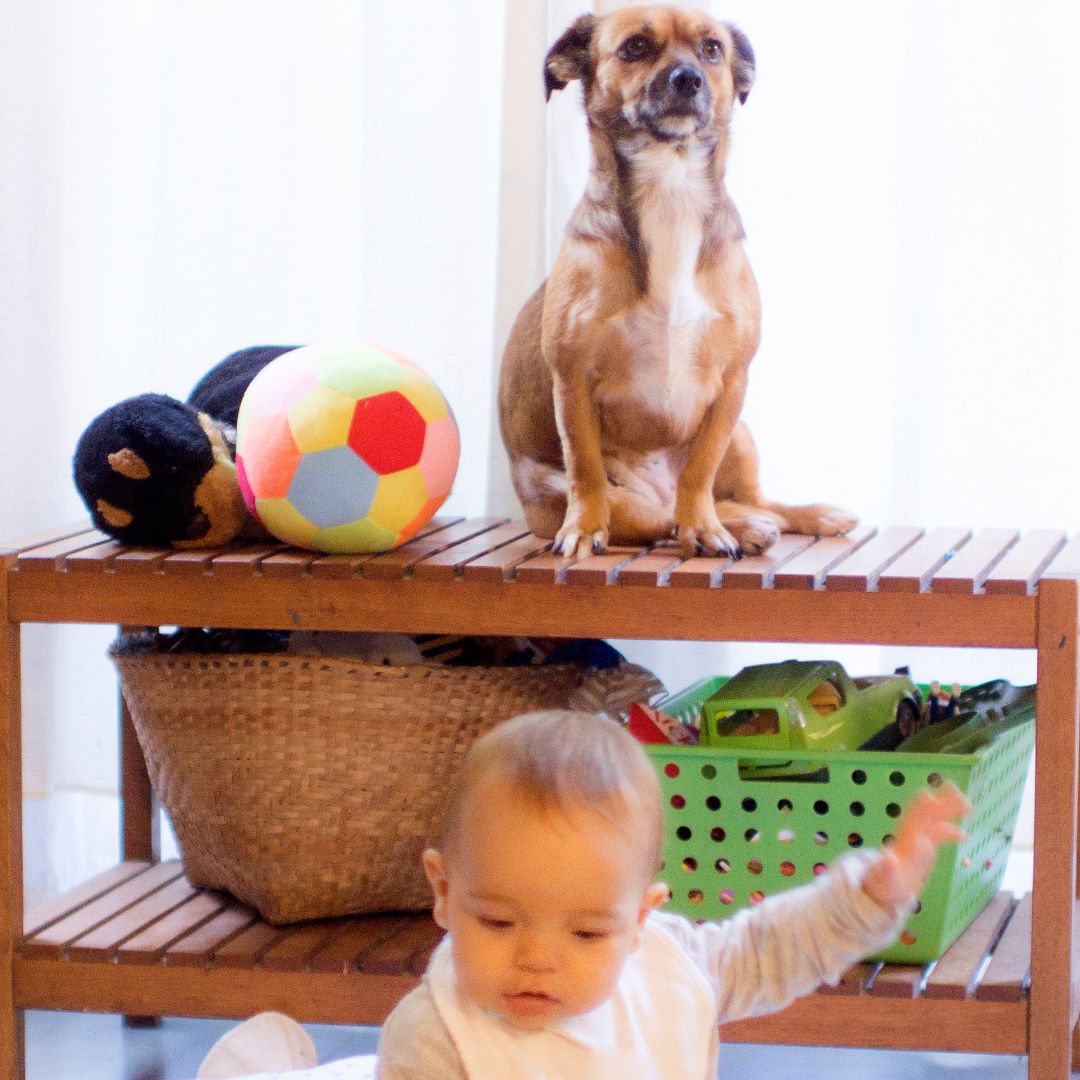HOW TO CHOOSE A DOG FOR A FAMILY WITH CHILDREN
Many parents wonder whether it is a good idea to have a dog alongside a small child. The answer to that question is not a simple yes or no. Like everything else, life with a dog alongside a small child has its advantages and disadvantages. I have gone through that phase myself, so I will list the most important factors that should influence the decision to live with a dog alongside small children.
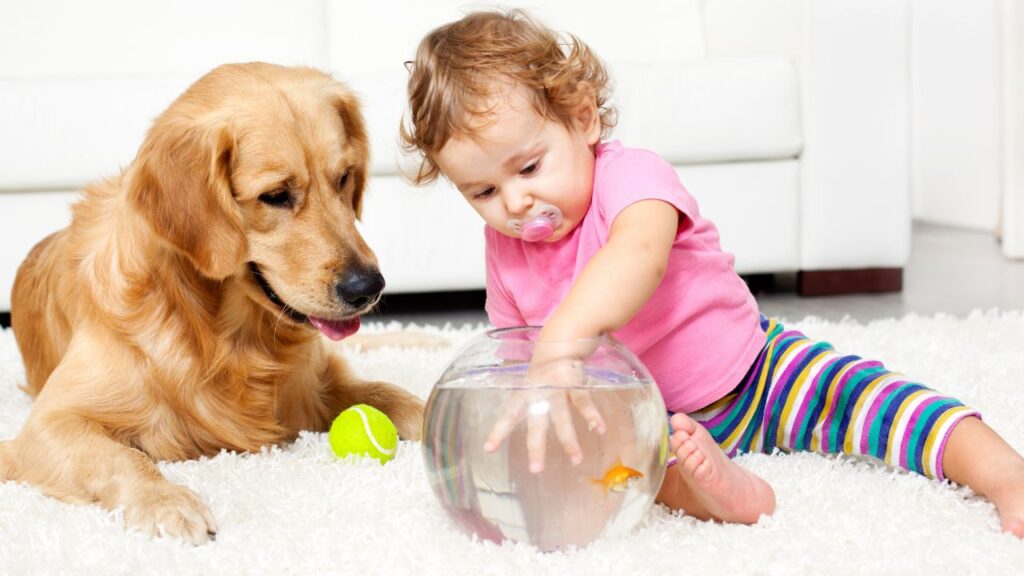
Before deciding on a four-legged friend, it is necessary to:
- - Ensure that all family members genuinely love dogs. It is important to be prepared to dedicate enough time and attention to the dog, and to be aware that the dog will become a part of the family.
- - Be aware that a small child cannot take care of a pet independently.
- - Consider whether you have enough time, energy, and money to take long-term care of a dog.
- - Research dog breeds that are good with children.
- - Adapt the size, i.e., breed of the dog to the space where you live. Some dogs are suitable for living in a yard, while others are exclusively indoor dogs.
If you have the means, rest assured that your child will have many positive effects from having a dog. From increased physical activity and self-confidence to developing empathy and social skills, dogs are great pets for families with children.
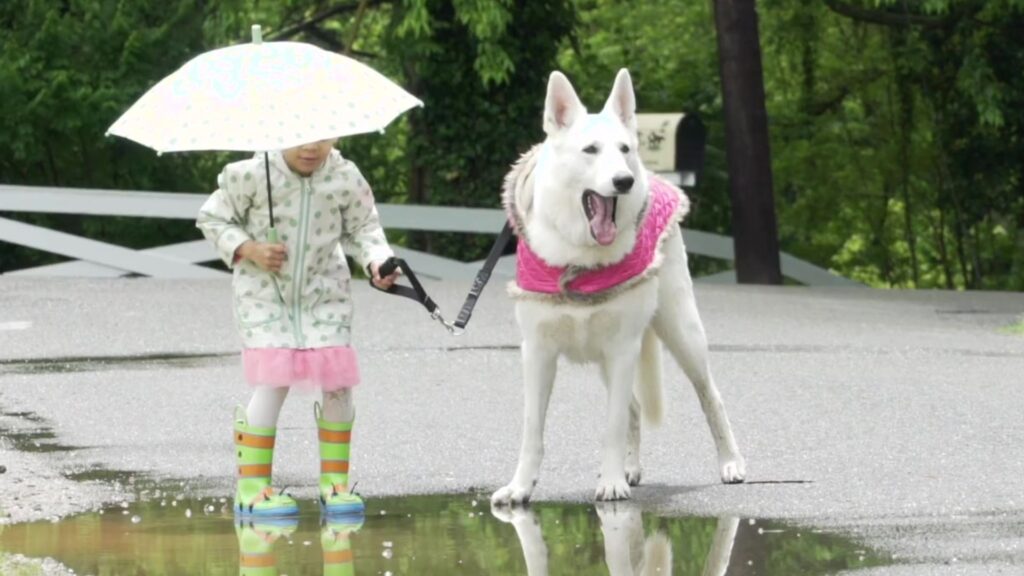
- • Increase emotional bonding: Dogs can help children develop an emotional connection and bond with animals and other people. This bond can be of great help in developing social skills in children.
- • Promote physical activity: Dogs are great playmates and love to be active. Joint activities with dogs, such as playing ball or running, can help children stay physically active and healthy.
- • Reduce stress and anxiety: Dogs can help reduce stress and anxiety in children. Their presence can help reduce feelings of loneliness, fear, and stress in children.
- • Help develop responsibility: Taking care of a dog requires responsibility and discipline. Children who have a dog learn about hygiene and caring for someone else, which can help develop responsibility and self-discipline.
- • Increase self-confidence: Dogs can help children build self-confidence. When children learn to take care of a dog and see the positive impact they have on it, it can help develop self-confidence and self-esteem.
- • Help develop empathy: Caring for a dog helps children develop empathy and compassion for other living beings. When children learn to recognize and care for their dog's needs, it can help develop empathy and understanding of other people.
- • Promote positive mood: Dogs are known for their ability to uplift people's moods. Interaction with a dog can help children feel happier and more content.
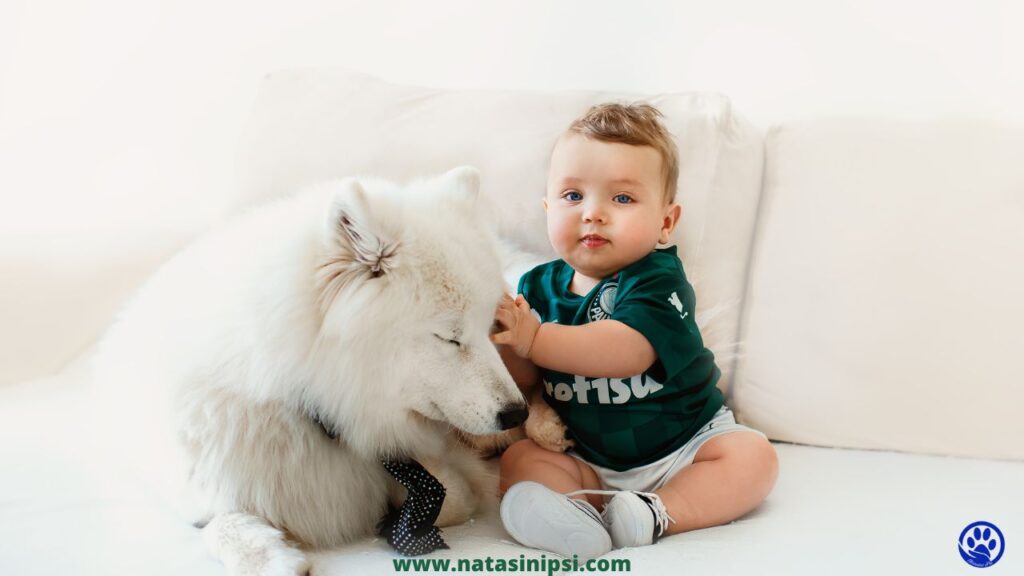
With all these positive effects that dogs can have on children, it is also important not to forget the responsibility that comes with owning a dog. It is important to provide the dog with adequate nutrition, healthcare, and physical activity, but also to properly socialize the dog to be safe and friendly towards children and other people.
The final decision on whether to have a dog with a young child depends on the individual circumstances of the family. It is necessary to consider all the pros and cons and make a decision that is best for your family. If you are ready to take responsibility for a dog and provide it with enough love and attention, life with a dog can be extremely fulfilling and bring many positive effects for you and your children.
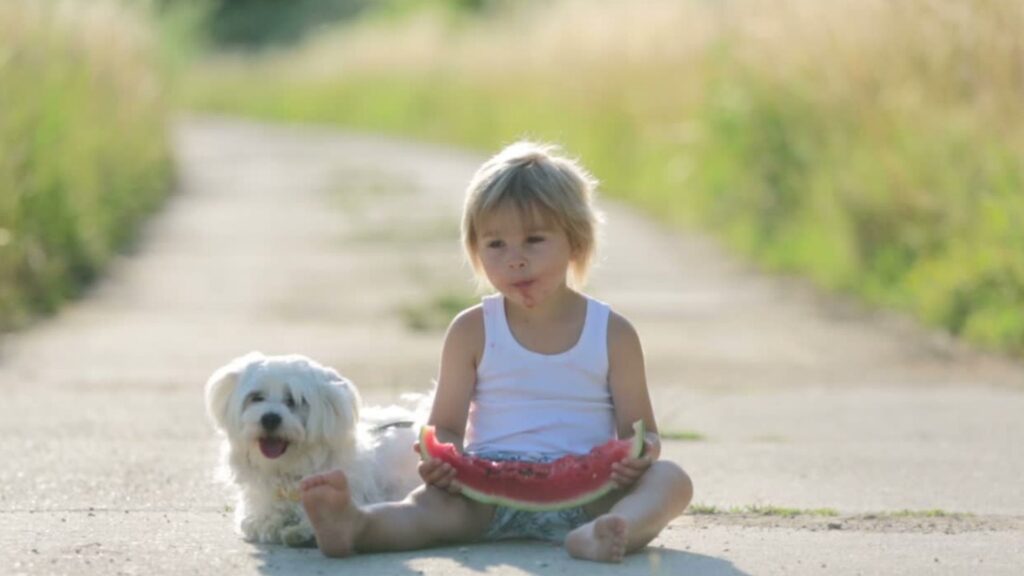
In the next topic, I will list dog breeds that are ideal for families with children.


